By Yashoda Singh & Roslyn Williams George
HISTORY OF THE PROJECT
Caparo River Water Quality Testing (2014-2015)
In 2014-2015, the Cashew Gardens Community Council (CGCC), in conjunction with the Social Justice Foundation, participated in a water quality testing programme hosted by WASA. Based on data that was recorded from conception, it was discovered that the water in the Caparo River was heavily polluted. A significant amount of this pollution was solid waste that was indiscriminately dumped into the drains and/or rivers, which would eventually end up into the sea.
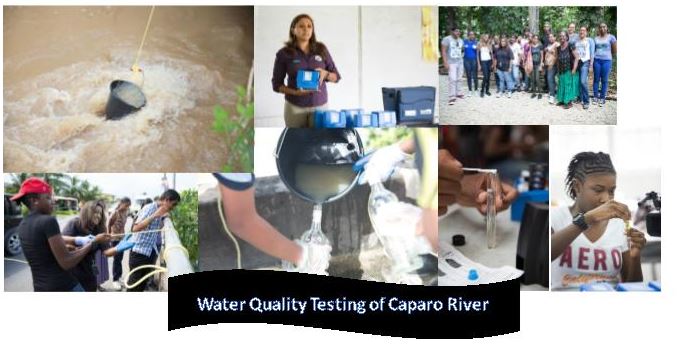
Caparo River Cleanup (2016)
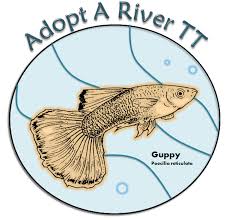
In 2016, the CGCC further participated in a river clean up initiative launched by Adopt A River and based on the data collected, it was discovered that additional work was needed in order to sensitize the communities surrounding the Caparo River about best practices regarding waste disposal.
The CGCC joined fourteen (14) other communities to clean rivers across the country. Data on the number and types of garbage was collected. Cashew Gardens (Caparo watershed) ranked fifth based on the following:
- Number of bags of plastics collected
- Number of bags of glass collected
- Total number of bags of garbage collected
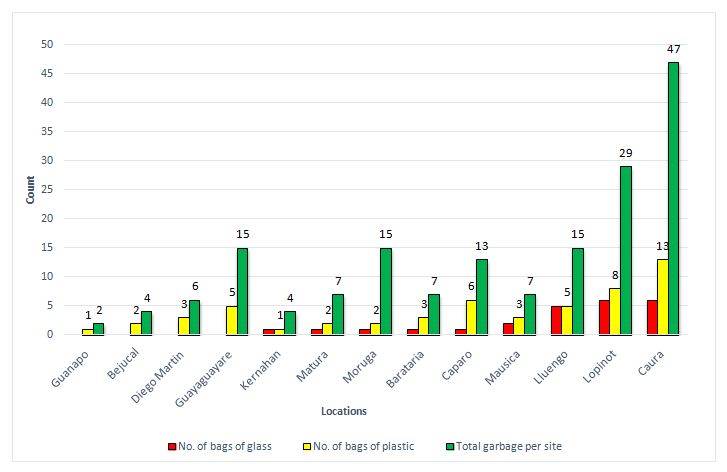
Figure 1: Total recyclables collected within 2-3 hours for World Rivers Day 2016
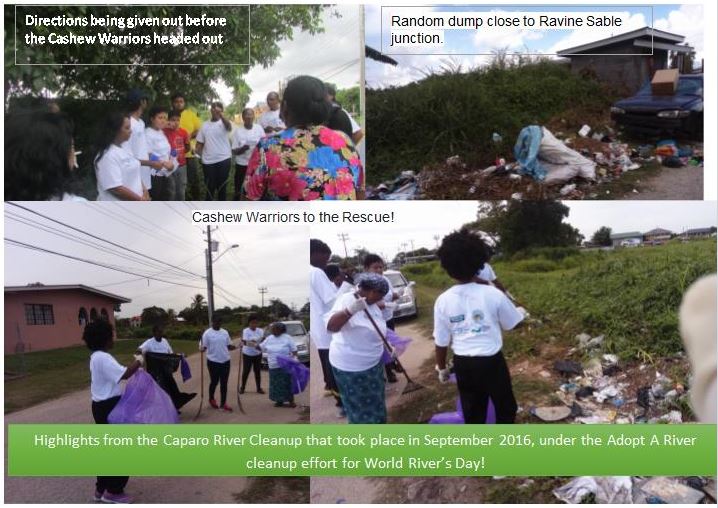
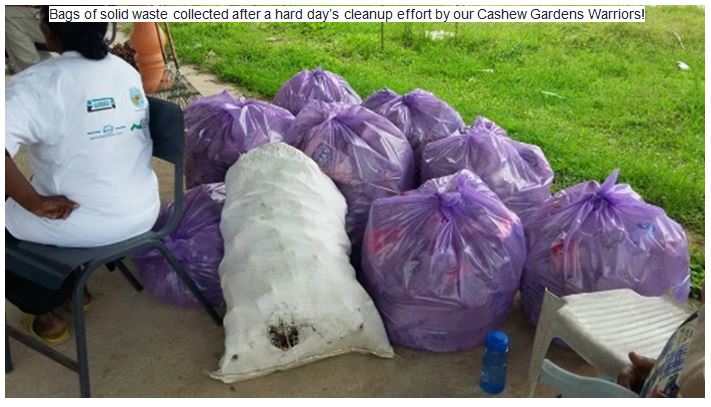
Recycling Initiative (2016-2017)
In 2016-2017, the Cashew Gardens Community Recycling Programme (CGCRP) was launched as the CGCC took the initiative to start recycling within their own community in order to determine if this will drastically reduce the presence of solid waste in the Caparo River, thereby positively affecting the quality of water.
A community meeting was held to promote the idea and get support from nearby households. This project was undertaken with no funding and manned by voluntary workers from the council and the children of the community.
The council partnered with several other stakeholders: Adopt A River, the EMA/iCare, Carib Glassworks Limited and SWMCOL. The intention was to develop and implement a recycling programme in Phase 1 of the Cashew Gardens community.
Bins were donated by CaribGlass and distributed along street corners throughout the community. These bins were distinguished by recycling stickers which were designed by CGCC. Bags were provided by RWL Logistics Limited, a recycling company specializing in plastics and cans, and the Adopt A River Programme provided transportation as well as technical support in terms of how to collect the data.
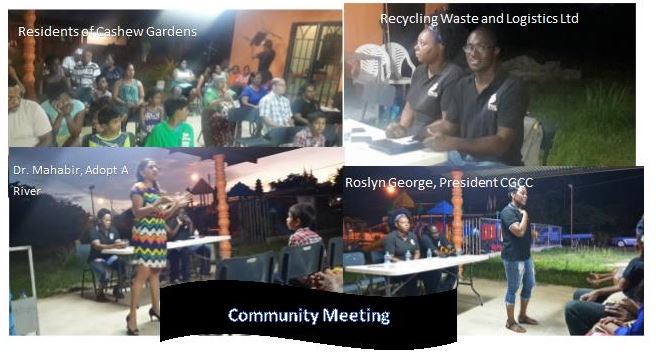
The bins were emptied by community members, especially its youth who were responsible for taking bags back to the community centre, emptying them and sorting them based on brands. They were led by the President of CGCC, Ms. Roslyn George. The different brands were then counted and recorded on an excel sheet.
The data was then compared with the existing data for the six months period in 2017 and then, with the data collected from 2016. Trends in terms of the most popular bottles as well as total number of bottles were identified.
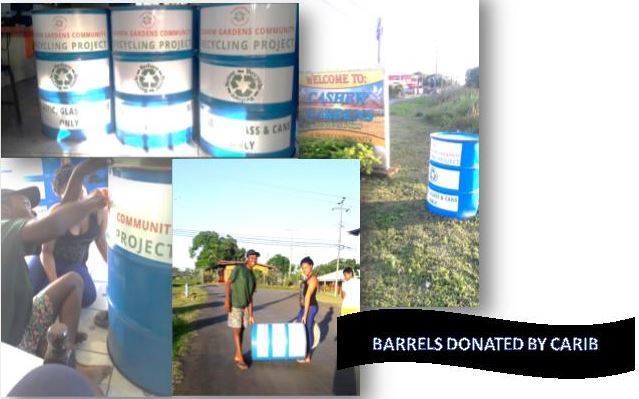
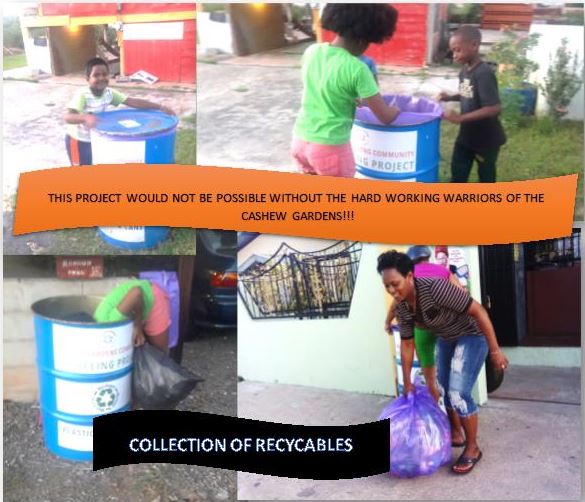
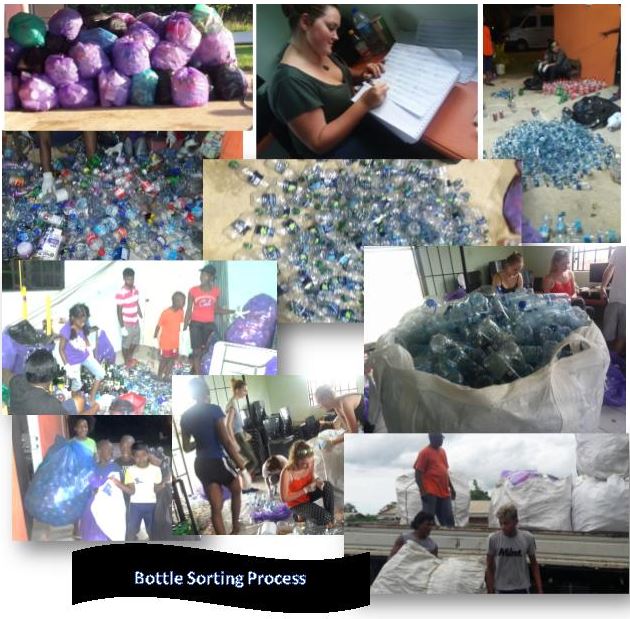
The initiative saw an increase in collection on a monthly basis and can be considered highly successful. In a period of 6 months, over 18,000 solid waste recyclable material, from a span of 150 households, were collected and therefore prevented from ending up in our nation’s rivers, seas and landfills.
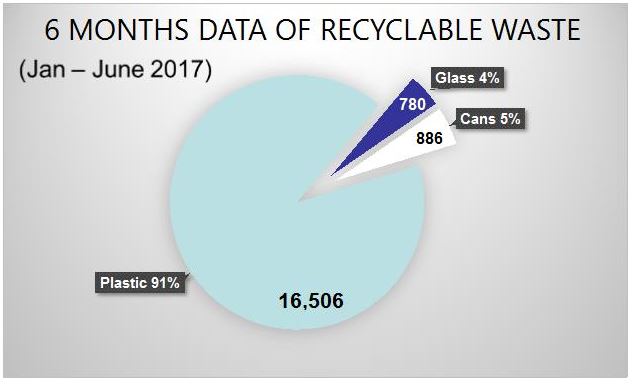
EXPECTED OUTCOMES OF THE PROJECT:
The Cashew Gardens community is relatively a small one that impacts the Caparo River and therefore there is an urgent need to involve all of the other communities that affect this water supply. This is the only way to considerably reduce solid waste and by extension the flooding that was evident during Tropical Storm Bret in 2017.
Since we embarked on this exercise, the work of Cashew Gardens has been recognized by several bodies. It is the intention of the CGCC Recycling Programme to expand our education and awareness activities beyond the existing 160 households. This recycling programme will become more extensive to include the other Cashew Garden phases (2 and 3) and our immediate surrounding communities, with the aim of becoming an agent of change in order to develop a habit of recycling at a household level.
This article was written by Yashoda Singh & Roslyn Williams George of the Cashew Gardens Community Council. The Cashew Gardens Community Council (CGCC) was established in 2001 to represent the needs of the residents of the Cashew Gardens Community, such as poor living conditions, and was a main driver in lobbying for the improvement of basic needs such as roads, street lights and water.
The CGCC’s mission is, “To create a holistic community focusing on education, environment and sustainable development by improving ourselves, our community and our country.”
Aside from the community’s Adopt-A-River and Recycling projects, the group has also spearheaded other activities including its flagship project,, the Cashew Gardens community garden which successfully improved the economic situation of some of its residents, a homework center and a Police Youth Group.
For more information about the CGCC or their upcoming projects please visit their Facebook page, website , or community profile.
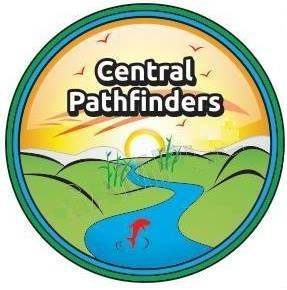
Great job Cashew Gardens!!
LikeLiked by 1 person